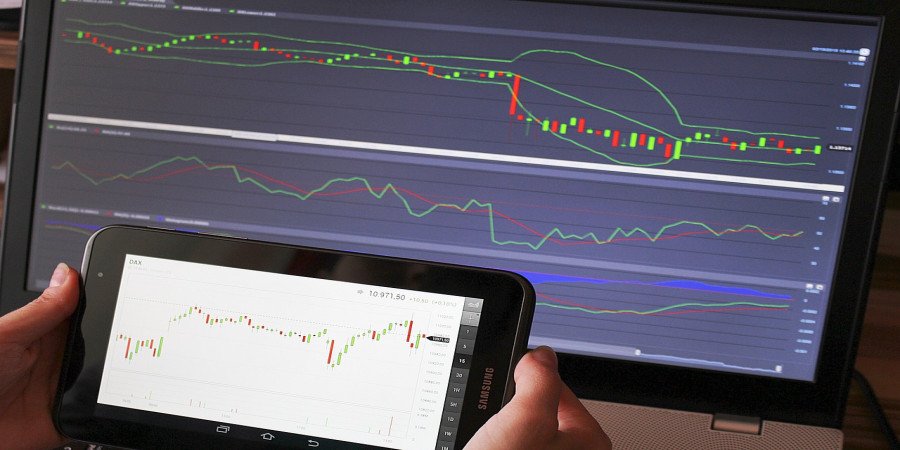

Forex Trading in 2025: Trends and Opportunities
Introduction to Forex Trading in 2025
- The foreign exchange market, commonly referred to as Forex trading, is one of the largest and most liquid financial markets in the world. With a daily trading volume exceeding $6 trillion, it plays a crucial role in the global economy, serving as the primary mechanism for currency exchange. In 2025, Forex trading is poised to become even more significant, as innovations and technological advancements transform the landscape for both retail and institutional traders.
- The appeal of the Forex market lies in its accessibility and the potential for high returns, which attract a diverse range of participants—from individual traders leveraging small investments to large financial institutions managing extensive portfolios. In recent years, the market has witnessed a dynamic evolution, with the introduction of advanced trading platforms and tools that provide traders with real-time data analysis, automated trading solutions, and more user-friendly interfaces. These advancements have democratized access to Forex trading, enabling more individuals to participate in this lucrative arena.
- As we look toward 2025, the integration of artificial intelligence and machine learning into Forex trading strategies is set to become increasingly prevalent. These technologies can enhance decision-making processes, providing traders with deeper insights into market trends and improving risk management. Additionally, the growing influence of social trading platforms is changing how new traders approach Forex, as they can now mimic the strategies of successful traders, thus potentially increasing their chances of profitability.
- The Forex trading landscape in 2025 will undoubtedly be shaped by these trends and others, from regulatory changes to the rise of decentralized finance (DeFi), which introduces novel ways to trade currencies. Understanding these developments will be essential for anyone looking to navigate the complexities of Forex trading in the near future.
Technological Advancements Shaping Forex Trading
- The world of forex trading is rapidly evolving, driven by technological advancements that are set to redefine market dynamics by 2025. Among the most influential developments are artificial intelligence (AI), algorithmic trading, and blockchain technology. Each of these innovations has the potential to significantly enhance trading strategies and improve overall efficiency within the foreign exchange market.
- Artificial intelligence is at the forefront of these changes, offering traders sophisticated analytical tools that can process vast amounts of market data in real-time. AI algorithms can identify patterns in price movements and predict future trends, enabling traders to make informed decisions with greater accuracy. For example, machine learning models are increasingly being utilized to refine trading strategies based on historical data, optimizing trade execution and risk management. The integration of AI into forex trading platforms allows for personalized trading experiences, tailoring suggestions based on individual trading behavior and preferences.
- Algorithmic trading also plays a pivotal role in the future of forex trading. This automated trading system uses predefined criteria to execute orders at speeds unattainable by human traders. By leveraging high-frequency trading strategies, algorithmic systems can capitalize on minute price discrepancies across various currency pairs. This efficiency not only increases transaction speeds, making it possible to execute trades within milliseconds, but also minimizes the psychological stress faced by traders making split-second decisions.
- Lastly, blockchain technology promises to revolutionize the settlement process in the forex market. By enabling secure, transparent, and immutable transaction records, blockchain can enhance trust among market participants. The adoption of smart contracts within the forex trading arena is expected to streamline operations, reducing the need for intermediaries and potentially lowering transaction costs.
- Together, these technological advancements signify a transformative period for forex trading, anticipating improved strategies, accuracy, and transaction efficiency by 2025.
Market Trends to Watch in 2025
- As we approach 2025, several key trends in the forex trading landscape are becoming increasingly evident. One of the most significant anticipated shifts is a rise in market volatility. Factors contributing to this heightened unpredictability include ongoing geopolitical tensions, monetary policy changes from central banks, and evolving global economic conditions. Traders will need to be prepared for sudden price fluctuations, which may create both challenges and opportunities when navigating the currency markets.
- In tandem with increased volatility, market participants should also pay attention to shifts in popular currency pairs. As economic powerhouses emerge and countries stabilize or destabilize, certain currencies are likely to gain traction among traders. For instance, emerging market currencies may attract more interest, particularly if they exhibit strong fundamentals and attractive interest rates. Consequently, traders might consider reevaluating their portfolios to incorporate these emerging currencies alongside traditional major pairs, such as the EUR/USD or GBP/USD.
- Geopolitical events will undoubtedly play a crucial role in shaping forex trading dynamics in 2025. Elections, trade negotiations, and international agreements can have immediate and substantial effects on currency values. Thus, traders should keep a finger on the pulse of global political developments and factor these into their trading strategies. Implementing a news-driven trading approach could be beneficial, enabling traders to react swiftly to relevant events and adjust their positions accordingly.
- Ultimately, the ability to adapt to these market trends will be vital for success in forex trading as we move toward 2025. By staying informed of the evolving landscape and adopting flexible trading strategies, traders can better position themselves to mitigate risks and capitalize on potential opportunities in a more volatile and dynamic environment.
The Role of Regulation in Forex Trading
- The landscape of forex trading is witnessing substantial changes due to the evolving regulatory environment, particularly as we approach 2025. Regulatory bodies across the globe are increasingly focusing on establishing stringent measures to enhance market integrity and protect investors. These adjustments are particularly crucial as the forex market experiences heightened participation from both retail and institutional traders. Compliance with emerging regulations is an essential factor that traders must consider to navigate this evolving terrain effectively.
- As forex trading becomes more accessible through technology and platforms, the regulatory environment will likely tighten to address concerns related to market manipulation, fraud, and the increased velocity of trading activities. Regulatory authorities may implement stricter guidelines on leverage, margin requirements, and brokers' operational standards to mitigate risks associated with high-frequency trading and speculative practices. The objective is to create a safer trading environment that fosters confidence among participants.
- For retail traders, understanding these regulations is vital for successful trading strategies. Failures to comply with regulations not only lead to penalties but can significantly undermine the integrity of their trading operations. Institutional traders, on the other hand, are compelled to adapt their compliance structures to align with both local and international regulatory frameworks. As these entities often engage in larger volume trades, the importance of governance and adherence to compliance measures becomes paramount to maintain a positive relationship with regulatory bodies.
- Furthermore, transparent and robust regulatory frameworks will build trust among investors, fostering a more stable forex trading environment. As we move toward 2025, it is evident that ongoing collaboration between traders, regulatory bodies, and platforms will be essential. This cooperation will ensure that the forex trading ecosystem is not only efficient but also secure, paving the way for sustainable growth within this dynamic market.
Emerging Markets and Currency Pairs
- As the global landscape continues to evolve, several emerging markets are gaining significant traction in the realm of forex trading. By 2025, traders should closely monitor these markets, as they offer numerous opportunities and potentially high returns. One notable region is Africa, where economies such as Nigeria and Kenya are showing promising growth. The diversification of their economies and advancements in technology make them appealing for currency traders. In particular, the Nigerian Naira (NGN) and the Kenyan Shilling (KES) are expected to gain attention as more investors look to capitalize on the currencies’ fluctuations amid local market developments.
- Furthermore, Southeast Asia is poised for remarkable growth, with countries like Vietnam and Indonesia catching the interest of forex traders. Vietnam's robust manufacturing sector and increasing trade relations have bolstered the Vietnamese Dong (VND) as a noteworthy currency in forex trading. Similarly, the Indonesian Rupiah (IDR) is expected to benefit from the nation’s growing economic reforms and increased foreign investments, making it a currency to watch by 2025.
- Another region to consider is Latin America. The Brazilian Real (BRL) is already a popular choice among forex traders, but by 2025, opportunities linked to the Colombian Peso (COP) may also arise. The Colombian economy's focus on improving infrastructure and attracting foreign investment has the potential to make the COP a compelling prospect in the foreign exchange markets.
- In summary, traders looking to stay ahead in the forex trading game should keep an eye on these emerging markets and their respective currency pairs. By integrating an understanding of these evolving economies into their trading strategies, investors can better position themselves to take advantage of the opportunities that arise as these markets develop in the coming years.
Opportunities for Retail Traders in 2025
- As we look ahead to 2025, the landscape of forex trading is poised for significant transformation, presenting an array of opportunities tailored for retail traders. The advent of advanced trading platforms has democratized access to the forex market, allowing individual traders to engage in activities that were once exclusive to institutional investors. These user-friendly platforms often come equipped with sophisticated analytical tools, real-time data feeds, and automated trading features, empowering retail traders to make informed decisions and execute trades with efficiency.
- Another noteworthy trend is the growth of social trading communities. These platforms allow traders to share insights, strategies, and market analysis, creating an ecosystem where knowledge can be collectively harnessed. Retail traders can follow and replicate the trades of seasoned investors, reducing the learning curve associated with forex trading. This form of collaborative learning fosters a sense of community and support, which is invaluable for individual traders navigating the complexities of the forex market.
- The availability of educational resources is also expanding swiftly. As the popularity of forex trading rises, numerous online courses, webinars, and tutorials are becoming accessible to those eager to enhance their understanding of the market. Such educational initiatives cater to all experience levels, from novice traders seeking a foundational grasp of concepts to advanced traders looking to refine their strategies. Retail traders in 2025 can leverage these resources to improve their trading skills, increase their market knowledge, and ultimately enhance their financial performance.
- In conclusion, the year 2025 is set to offer retail traders a wealth of opportunities through innovative trading platforms, collaborative social trading environments, and comprehensive educational resources. These advancements not only democratize forex trading but also provide pathways for personal financial growth and enhanced market participation.
Risk Management Strategies for Forex Traders
- As Forex trading continues to evolve, effective risk management strategies become increasingly critical for traders navigating the complexities of the market in 2025. Understanding the importance of risk management can significantly enhance the success rate of traders, allowing them to minimize potential losses while maximizing potential gains. One fundamental strategy is the implementation of stop-loss orders. These orders automatically close a position when a specified loss level is reached, thereby protecting traders from significant downturns. By setting these parameters before entering a trade, Forex traders can manage their exposure and abide by their risk tolerance levels.
- Another essential aspect of risk management in Forex trading is portfolio diversification. Traders can reduce risk by spreading their investments across various currency pairs rather than concentrating on a single pair. This strategy helps to mitigate potential losses since a decline in one currency pair may be offset by gains in another. Additionally, incorporating different asset classes—such as commodities, stocks, or bonds—can further diversify the entire portfolio and reduce exposure to market volatility inherent in currency trading.
- Staying informed about geopolitical events, economic indicators, and market trends is also a vital component of effective risk management. Knowledge of upcoming market events, such as economic data releases or central bank decisions, equips traders with the necessary foresight to make informed decisions. Adopting a disciplined approach that includes regular analysis and adjustment of trading strategies in response to market conditions strengthens a trader's ability to navigate uncertainties.
- Ultimately, creating a comprehensive risk management plan tailored to individual trading goals is crucial for successful Forex trading. By combining strategies such as stop-loss orders, diversification, and informed decision-making, traders can establish a robust framework for managing the inherent risks associated with currency trading in 2025.
The Future of Forex Trading Education
- As the landscape of financial markets continues to evolve, so too will the educational resources available for forex trading. By 2025, we anticipate a significant transformation in how aspiring traders acquire knowledge and skills necessary to succeed in this dynamic environment. One of the most promising developments will be the incorporation of immersive learning experiences. Technologies such as virtual classrooms and online simulations are likely to become integral components of forex trading education. These platforms will offer interactive training sessions that replicate real-world trading scenarios, allowing learners to practice their strategies without incurring financial risk.
- The rise of augmented and virtual reality (AR and VR) in education could further enhance this experience. By enabling participants to navigate virtual trading floors, traders can gain valuable insights and hands-on experience, making the learning process more engaging and effective. As a result, education in forex trading will not only convey theoretical knowledge but will also develop practical skills through experiential learning. Such advanced educational tools may also facilitate collaboration among learners and instructors globally, enriching the educational experience with diverse perspectives.
- Moreover, the significance of continuous education cannot be overstated. With the rapid pace of technological advancements and changing market conditions, traders must remain informed and adaptable. Future forex trading education will therefore focus on lifelong learning opportunities, equipping traders with current insights into market trends, risk management, and trading strategies. Online courses, webinars, and mentorship programs are expected to be tailored to fit the varying needs of traders, regardless of their skill levels. This adaptability will be paramount as traders seek to refine their strategies to succeed in the competitive forex markets.
Conclusion: Embracing the Future of Forex Trading
- As we look to the future of forex trading in 2025, it is clear that the landscape will continue to evolve rapidly. The integration of advanced technologies, such as artificial intelligence and machine learning, is set to transform trading strategies and enhance decision-making processes. Traders can anticipate an environment where data analysis and predictive modeling become integral to successful trading, allowing for precision in executing trades.
- Moreover, the growing trend towards social trading and collaborative platforms signifies a shift toward community-driven trading decisions. As information becomes more easily accessible, novice traders can leverage the expertise of seasoned professionals to make informed choices. The importance of education cannot be overstated; traders must remain committed to continuously refining their skillsets and adapting to new tools that emerge within the market.
- The regulatory framework surrounding forex trading is also expected to evolve in response to technological advancements and market demands. Staying abreast of regulations is essential for traders seeking to navigate potential pitfalls effectively. Understanding compliance requirements will not only protect individual traders but also contribute to a more stable trading environment overall.
- In summary, the key to thriving in the future of forex trading lies in adaptability and information. By embracing the opportunities presented by technological advancements and community resources, traders can position themselves for success. The ability to adjust strategies in the wake of changing trends will be paramount. Those who remain informed, engaged, and flexible will be well-equipp
Popular articles

Dec 10, 2024 09:59 AM

Dec 01, 2024 09:33 AM

Dec 08, 2024 09:56 AM

Nov 30, 2024 09:17 AM

Dec 09, 2024 09:58 AM
Comments (0)